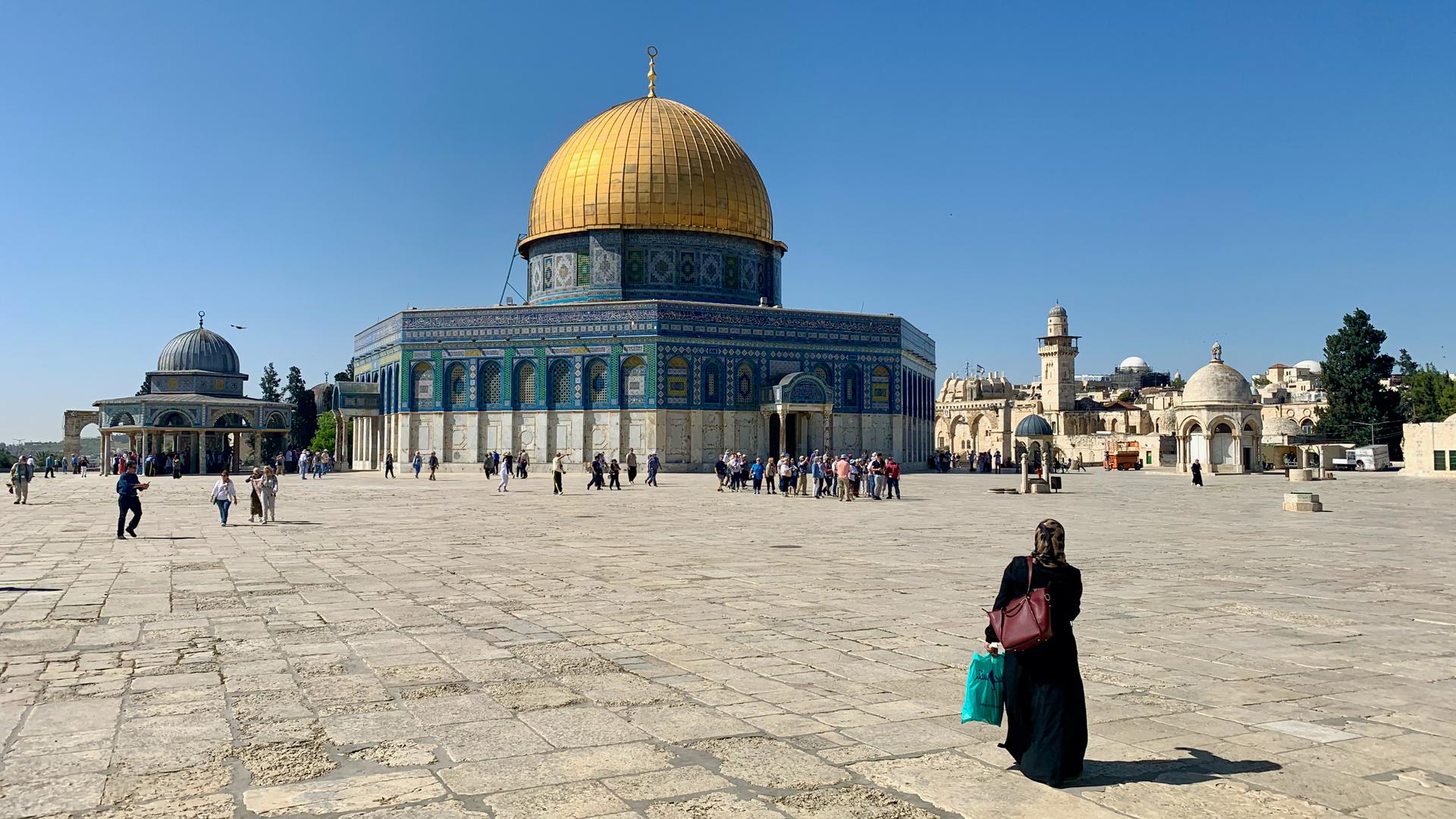On a recent weekday morning, dozens of tourists are lined up on a pedestrian ramp in the heart of the Old City in Jerusalem.
A recorded message reminds visitors of the significance of the place: “Please respect the holiness of the site and the worshippers. Please dress and behave appropriately during the visit.”
The ramp passes by the Western Wall and goes up to the Mughrabi Gate, one of the entrances to probably the most iconic location in the city of Jerusalem. It’s the Temple Mount, as Jews know the site, or the Haram al-Sharif, the Noble Sanctuary, as Muslims call it. This is also the location of the Al-Aqsa Mosque and golden Dome of the Rock.
The place holds an important place in religious scripture. It’s where the universe was created, where Adam stepped out of the Garden of Eden, where Abraham told God he was willing to sacrifice his own son, and it’s where Muhammad prayed with Jesus and other prophets before ascending to heaven.
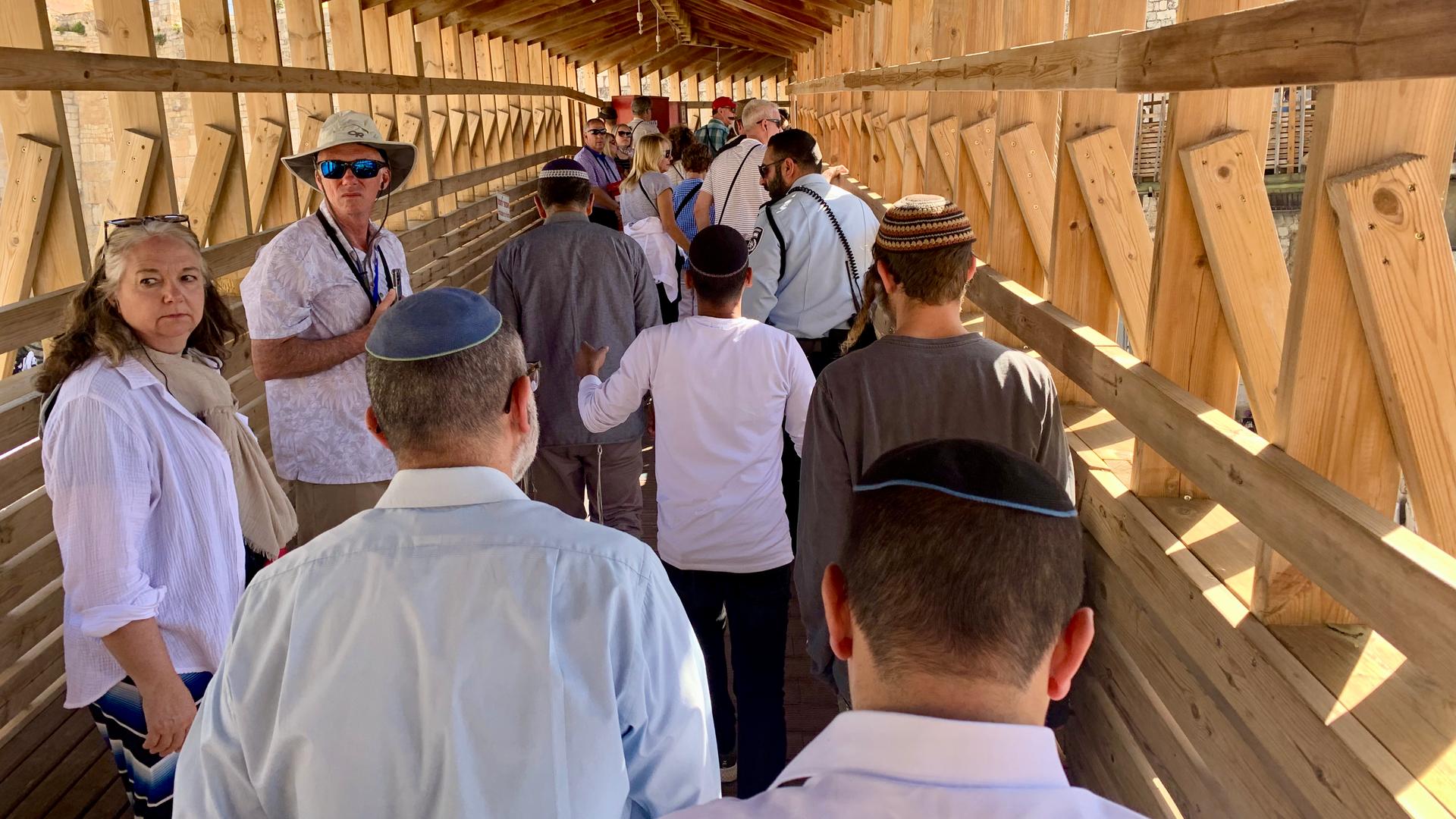
Recently, the holy compound has seen clashes between Israeli police and Palestinian Muslims, along with vandalism and rock-throwing between groups of Jews and Muslims. But authorities managed to avoid a worst-case scenario at the holy site during the overlapping religious holidays of Easter, Passover and Ramadan that ended a few weeks ago.
In many ways, things are getting back to normal here. But the status quo framework, an agreement between Israel and Jordan from 1967 with roots that go back to the 1800s, that governs how the holy site is run, is something that many people on both sides are not particularly happy about.
The holiest site in Jerusalem continues to be an ongoing source of contention between Jews and Muslims.
“We come here to pray, not to make problems for anybody,” said Khalil Maas’hal, who was at the mosque with his two adult sons.
Maas’hal explained that Muslims have a religious duty to visit this place.
“Every prayer on this spot,” he said, “is multiplied 500 times.”
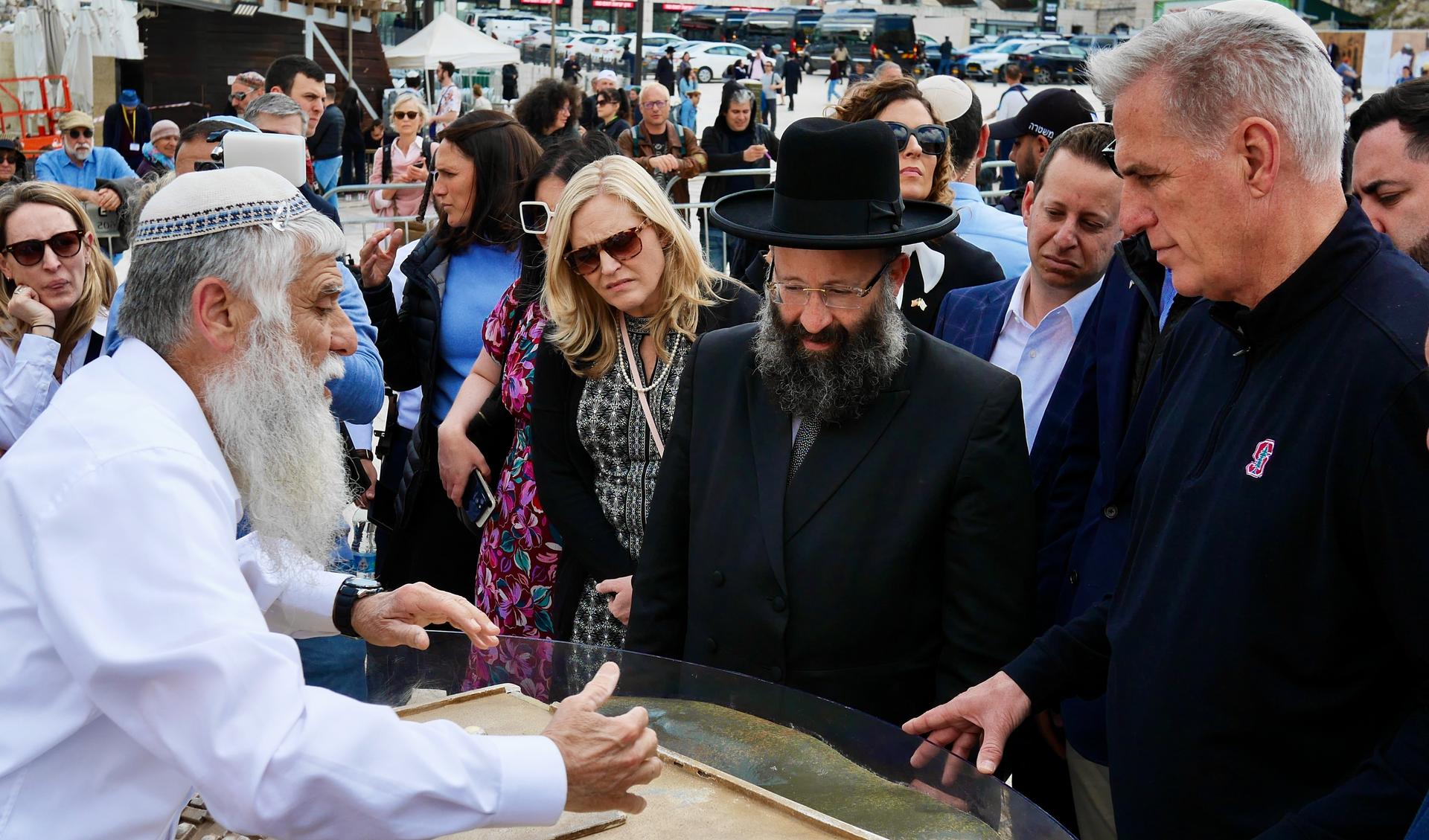
Maas’hal, who is from Ramallah, about a 30-minute drive away from Al-Aqsa, said he’s got a special ID card that gets him through the Israeli military checkpoint to pray there.
“The problems happening here are created by the Israelis,” he said.
Ikhlas Malhi, who came to the mosque from East Jerusalem with her daughter, said that she’s witnessed many instances of violent clashes.
“I have seen Israeli soldiers stamp on the Quran. I have seen them attack the youth. I have seen them hit women, beat them up and arrest them. I’ve seen all this violence against people entering the mosque.”
Last month, Israeli police said they were forced to confront Palestinian Muslims who barricaded themselves inside the mosque with piles of rocks and fireworks. Under the status quo framework, Israel’s police forces maintain security at the Temple Mount. They also control the entrances to the holy site, where non-Muslim prayer is forbidden. The Waqf — a Muslim trust under the supervision of the government of Jordan — is in charge of running the religious and administrative affairs at the Noble Sanctuary.
Abeer Ziad is an archaeologist with the Waqf. And, like many Palestinians, she said that what she fears most is that the Israelis intend to demolish the Al-Aqsa Mosque to make way for a new Jewish temple.
“This is what they ask for. You can go to all the websites of the Temple groups. This is what they [demand], to demolish the place and build a temple and this place to be just for them.”
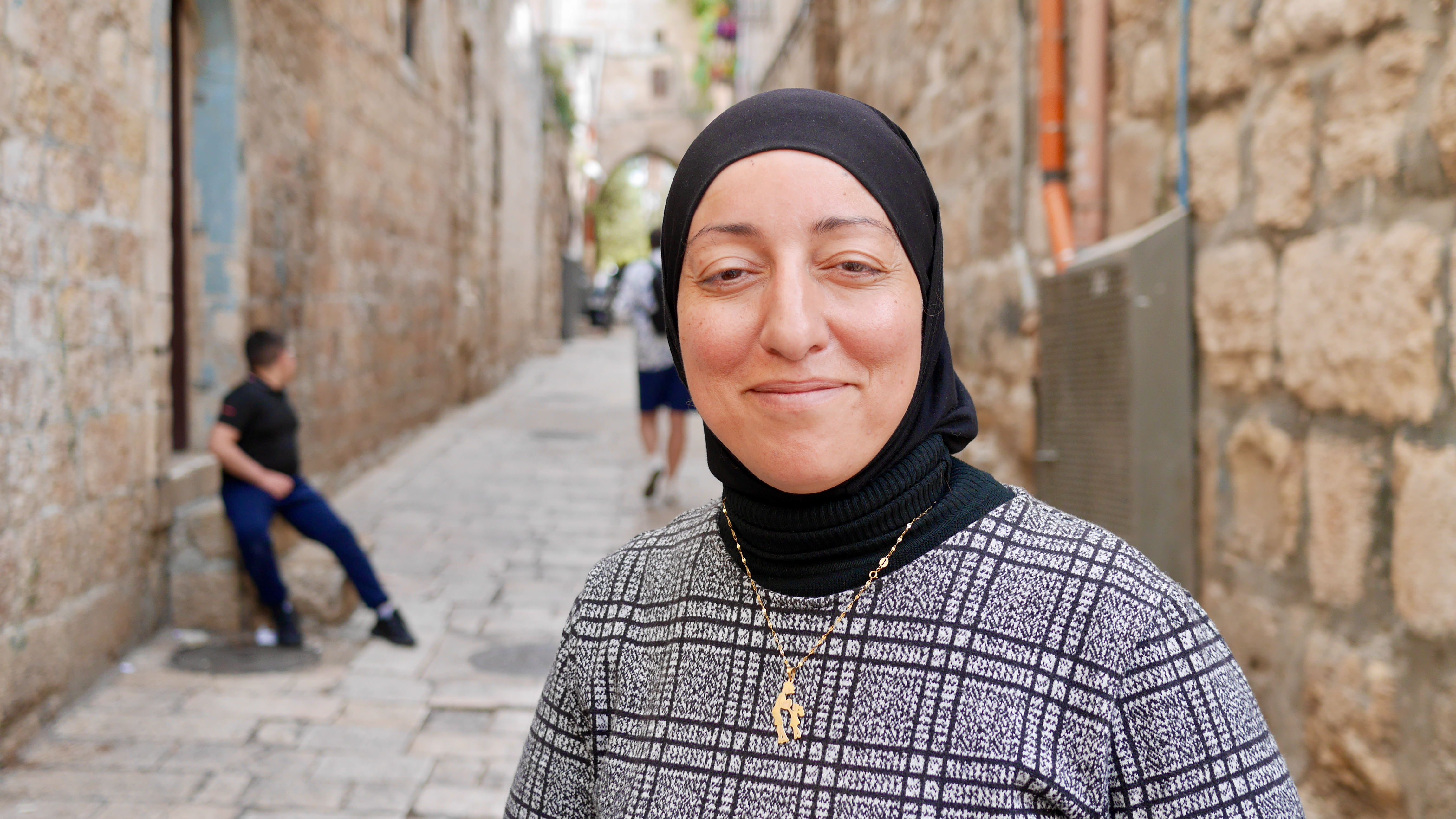
Lots of Israelis say this fear is entirely overblown, that Israel’s government has controlled the Old City of Jerusalem going back to 1967 and it’s maintained the status quo arrangement ever since.
But some point out that things have changed here at the Temple Mount, with more Jewish nationalists making a point to visit the place on a regular basis.
Groups of Jewish visitors are always accompanied by a police escort here to prevent scuffles with Muslim worshippers and ensure that nobody’s breaking the rules under the status quo.
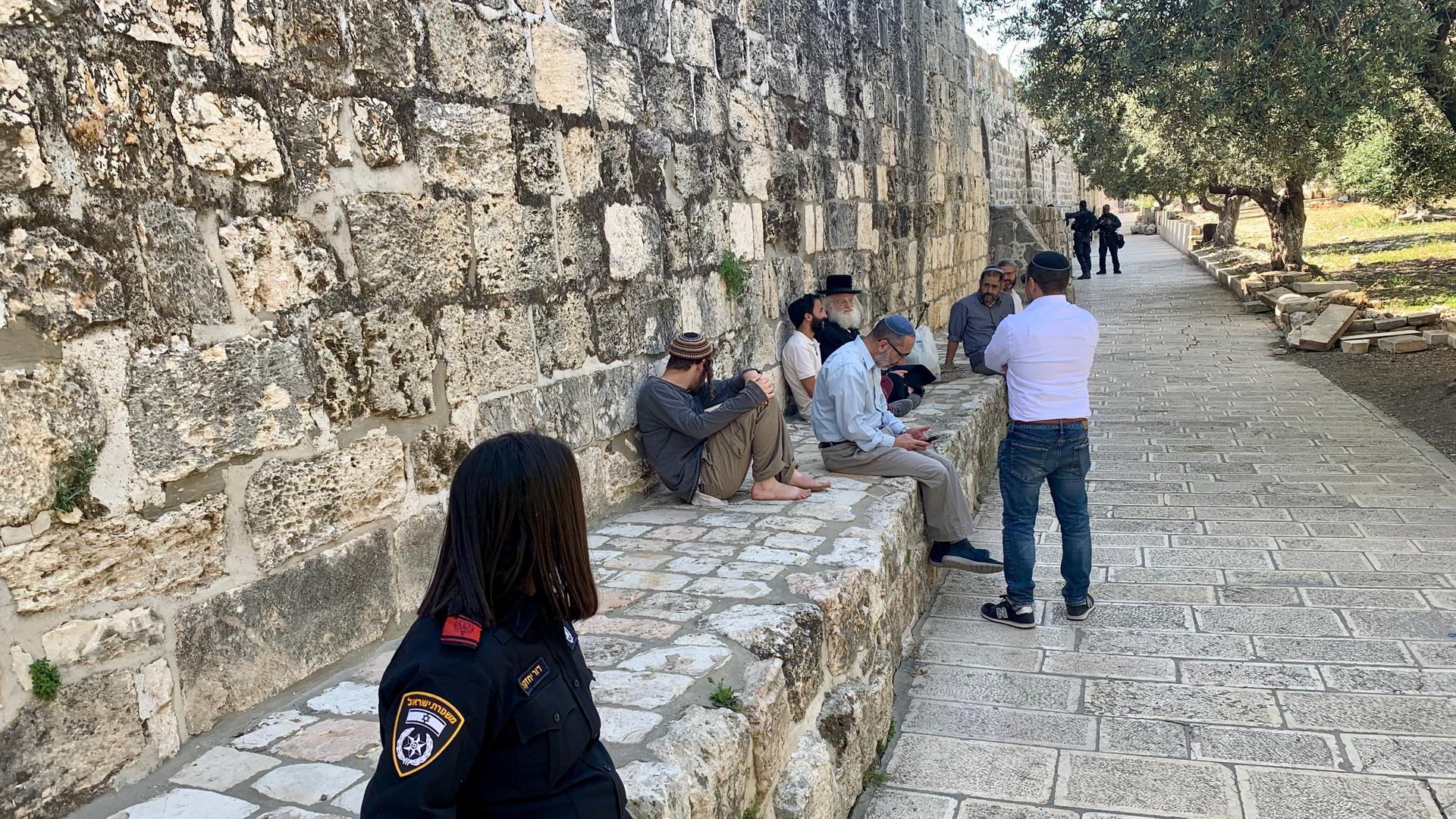
Only Muslims are allowed to pray at the holy compound. But a security guard with the Waqf, who didn’t want to be identified, said he sees Jewish visitors going against the rules all the time.
Daniel el-Meleh, a retired software engineer from Jerusalem, said that he tries to come here every week, even though prominent rabbis in Israel say the Temple Mount is too holy and that Jews should not be setting foot there.
“I’m not coming for a religious purpose. I’m coming for [a] national purpose. Just to be here. To say, I’m part of it. That’s my home. It’s like you go back to your home, and you want to sit there because that’s yours. So, I’m here to say, ‘That’s mine.’”
Meleh said that he doesn’t agree with the status quo framework.
“It’s not OK, because I’m telling you, that’s the only place in the world, on the planet where I don’t feel comfortable.”
He said that he’s not comfortable because Jewish prayer is forbidden on the Temple Mount, and because Jews are only allowed to visit during certain times of the day.
On Sunday, Israel’s far-right national security minister Itamar Ben-Gvir made his second known visit to Jerusalem’s holiest site. In a video released by his office, he said the presence of Israeli police “proves who’s in charge in Jerusalem.”
US State Department spokesperson Matthew Miller said the Biden administration was concerned by Ben-Gvir’s “provocative visit … and the accompanying inflammatory rhetoric.”
